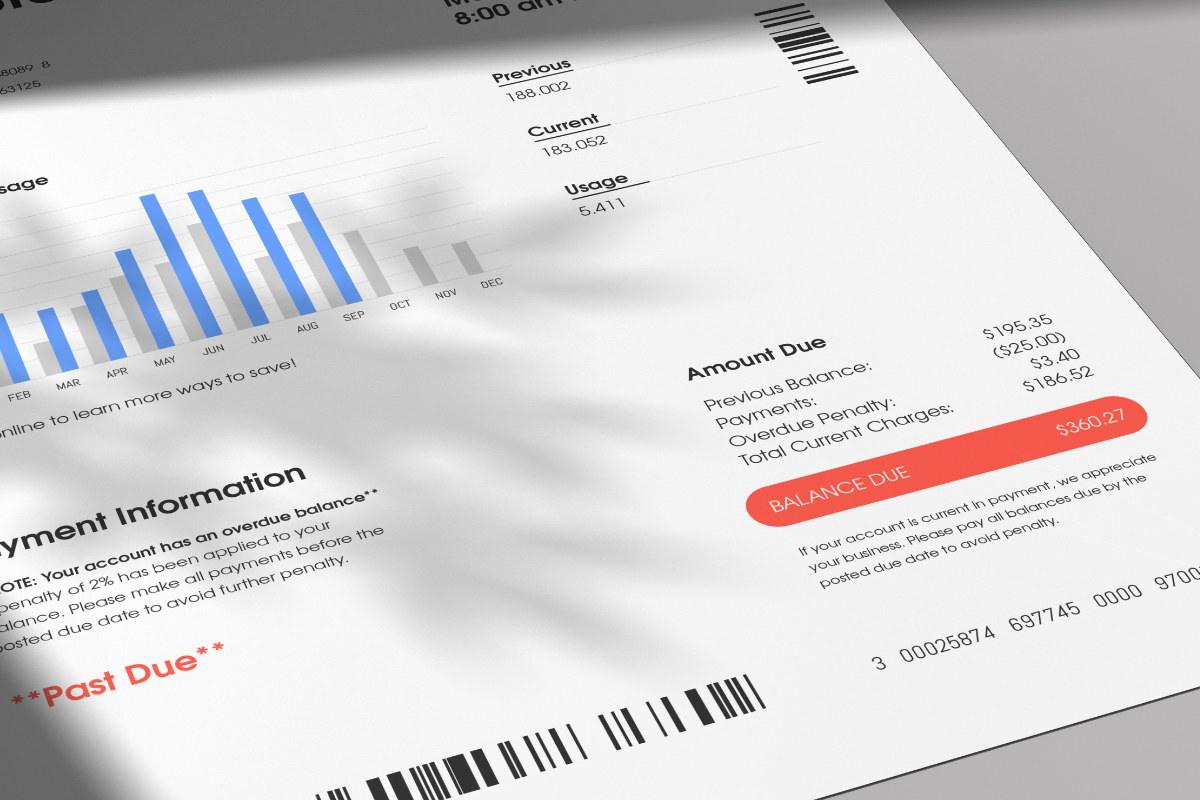Post Disclaimer: This blog reflects the author's personal experience with end-of-life matters and is provided in good faith for informational purposes only. While we aim to provide clear guidance on hard-to-find topics, this content is not legal advice and your use is at your own risk. Estate planning and end-of-life laws vary by location, so please consult your state's laws and seek guidance from a licensed attorney for your specific situation. We make no warranty about the accuracy or completeness of this information, which does not replace professional legal counsel. For more information, please see our full disclaimer.
Losing a loved one is emotionally challenging, and dealing with the logistics afterward adds another layer of stress.
One critical task that often needs immediate attention is notifying utility companies of a death.
This step is vital to prevent service disruptions and is part of settling estate documents.
Whether it's transferring utilities when someone dies or changing names on accounts, these details matter.
Questions such as "who pays utility bills after death" or "how long to keep utility bills after death" can be much clearer with a little guidance.
As you navigate this process, consider how straightforward actions, like informing utility companies of a death, can smooth the transition.
Addressing these tasks efficiently will ease your burden and help maintain the continuity of essential services during an otherwise turbulent time.

Understanding the Need for Notifying Utility Companies of a Death
After losing a loved one, the responsibilities that follow can feel overwhelming.
During this time, it is essential to manage various practical aspects, including notifying utility companies of a death.
Not only does this step prevent unnecessary service interruptions, but it's also a crucial part of managing the deceased's estate.
Understanding the responsibilities that come with this task can make the process a bit more manageable.
Legal Obligations and Responsibilities
When a family member passes away, surviving relatives often need to take on the legal responsibility of closing or transferring utility accounts.
While it might seem like a minor task, it often requires formal documentation like a death certificate.
This document proves the authority to act on behalf of the deceased and is necessary when dealing with utility providers.
But do utility companies need death certificates in every case?
Understand the specifics of your situation by contacting each provider, as requirements can vary.
Surviving family members are typically obligated to ensure that all pending utility bills are settled.
This might involve paying outstanding balances or changing names on accounts.
Inquiring with companies directly will give clarity on who pays utility bills after death and the steps involved in transferring utilities when someone dies.
Being prompt in these communications helps in preventing any additional burdens from falling onto the family.
Preventing Service Interruptions
Maintaining utility services during the transition period is crucial. Imagine dealing with a loss and suddenly losing power or water – it's an added stress no one needs.
To avoid this, make sure to engage with utility providers about your loved one's accounts as soon as possible.
This involves informing utility companies of a death and arranging for either temporary holds or the transfer of services.
Consider how long services might need to remain active — especially in properties that might be sold or transferred.
Notifying utility companies swiftly can minimize the risk of any disruptions.
If services are cut unexpectedly, it could affect selling the property or even maintaining it, leading to additional costs and complications down the line.
Taking these steps ensures that utilities are appropriately managed, giving peace of mind and the stability needed to address more personal aspects of your loss.
For further advice on handling this sensitive issue, resources such as Life Ledger's guide can offer insights into effective management during these times.

Steps to Notify Utility Companies After a Death
Navigating the process of notifying utility companies after a loved one passes can be daunting.
It's about more than just paperwork; it's about ensuring the continuity of essential services and respecting the estate responsibilities.
Here are some key steps to guide you through this necessary task.
Gather Necessary Information
Before contacting any utility provider, it's imperative to gather essential documents and information to facilitate a smooth process.
This step reduces the potential for back-and-forth communications and speeds up the task of managing utilities.
Here's a checklist of what you might need:
- Death certificate: This official document confirms the deceased's passing and may be required by utilities for verification purposes.
- Proof of Executor: A legal document that affirms your authority to manage the deceased's financial affairs.
- Personal information of the deceased: This includes their full name, address, and account numbers related to each utility service.
- Your personal identification: Utility companies may request your identification to verify your executor status.
Organizing these documents will save time and provide clarity when notifying utility companies of a death.
Contacting Utility Providers
Once you have the necessary information, the next step is to reach out to the individual utility providers.
Having a systematic approach can help ease this process.
Here are some tips for contacting utility companies:
- Phone call: Most utility companies have dedicated bereavement teams. When calling, be prepared for varying requirements. Clarifying each company's process will prevent misunderstandings.
- Email or Online Portal: Some companies offer online options to submit information and necessary documents. This may include uploads of scanned documents and submission forms.
- In-Person Visit: Though less common, this might be needed for local utilities or smaller providers and gives you the advantage of having direct, personal communication.
It's wise to ask questions such as about transferring utilities when someone passes away and inquire what changes might need immediate attention to ensure continuity of service.
Do Utility Companies Need Death Certificates?
A common question when dealing with utility accounts after a death is whether utility companies need a death certificate.
The short answer is yes, most providers request it as a part of their policy.
The death certificate serves as proof for actions such as changing names on utilities after a death or settling outstanding accounts.
Obtaining a certified copy can be done through the county's vital records office or via online services provided by the state's health department.
This document will be a frequent requirement as you handle various aspects of the estate, beyond just the utilities.
While notifying utility companies of death might feel overwhelming, following these steps will streamline the process.
Getting organized, reaching out calmly, and understanding legal requirements such as needing a death certificate are all integral stages in effectively managing utility transitions.
Resources like Life Ledger can provide additional support and information during this time.

Transferring or Changing Utility Accounts
Managing utility accounts after a loved one's passing might not be your first priority, yet attending to it prevents unwanted service disruptions.
This task includes understanding who pays these utility bills and knowing the steps necessary for transferring accounts into someone else’s name.
Who Pays Utility Bills After Death?
Determining who is responsible for paying utility bills after a loved one’s death can be confusing.
Generally, the estate handles these outstanding balances.
If the deceased person left behind assets, those funds might cover required payments.
However, if accounts aren’t settled, service providers could temporarily disconnect services, compounding stress during already challenging times.
The implications can extend beyond just balancing the final bills.
Unresolved utility payments might impact any heirs inheriting the estate, as debts typically need settlement first.
The executor or next of kin is often tasked with ensuring everything’s squared away.
Resources like Ever Loved's guide to handling utility bills can offer more insight.
Transferring Utility Bills When Someone Dies
The process of transferring utility bills after a death involves various administrative tasks.
Typically, the executor of the estate or an immediate family member will initiate the utility transfers.
Here’s how to manage this:
- Contact the Utility Provider: Inform them of the account holder’s death and your intention to transfer the account. Companies such as BVU Authority often provide specific guidelines to follow.
- Provide Necessary Documentation: You'll usually need a copy of the death certificate and proof of your authority to manage the deceased’s affairs.
- Discuss Options: Service providers might offer temporary solutions like account freezing or seamless transfer to a spouse or family member. For more specific advice, the Death Notification Checklist on Up & Doing can be a helpful reference.
- Finalize the Transfer: Once documentation is in order, utility providers will proceed to change the name on the account.
Timeline for Utility Changes
Understanding the timeline for changing utilities can help reduce potential service interruptions.
It typically involves several steps, each of which might take a few days to weeks.
However, starting the process swiftly ensures smoother transactions.
- Immediate Notification: As soon as possible, notify all relevant parties about the death and intentions to transfer accounts.
- Gathering Documents: This might be the most time-consuming step. Proactively using services like Life Ledger (only available in U.K.) can expedite the process by organizing all necessary papers in advance.
- Utility Provider Response: Once documents are submitted, expect some turnaround time. Companies usually process transfers within a couple of weeks but contact them directly if any delays occur.
While facing such tasks during grief isn't easy, being methodical and informed about the process can lighten your load.
For further step-by-step guidance, the Death Notification Checklist is a readily available resource.

Managing Ongoing Utility Payments
Handling utility payments after a loved one's passing can feel like navigating an unfamiliar road without signs to guide you.
The process requires care, organization, and understanding of the options available to manage these accounts responsibly.
Let's explore some key aspects.
Paying Utility Bills After Death
When someone passes away, their estate generally assumes responsibility for outstanding utility bills.
These bills often need timely settlement to prevent interruptions in essential services.
But what if there's uncertainty about who actually pays them?
Typically, the executor of the estate handles these matters, using estate funds to cover costs.
It's important to communicate with each utility provider as soon as possible.
By informing utility companies of a death, you can determine specific requirements for settling accounts.
In certain scenarios, temporary measures, such as freezing the accounts or transferring them to another family member, may be feasible.
For additional insights on managing these payments, consider checking out resources like Mccreary Law Office's detailed guide.
Key Considerations Include:
- Prioritize Communication: Quickly contact each utility provider to inform them about the situation.
- Understand Responsibilities: Clarify who is responsible for utility bills and the process for using estate funds.
- Explore Temporary Solutions: Investigate options such as account freezes until permanent decisions are made.
For community advice on this matter, Reddit discussions can offer personal experiences and insights.
How Long to Keep Utility Bills After Death
Keeping your records in order during this transition is crucial.
But how long should you retain those utility bills?
While it might be tempting to dispose of all paperwork as soon as things are settled, maintaining a clear record can be significant for tax purposes and resolving any future disputes.
Typically, it's advisable to keep utility bills for at least one year after the account has been closed.
This timeline allows room for any discrepancies or last-minute charges that might arise.
Keeping these documents serves not just the estate's intended proceedings but also aligns with records of organizing estate processes.
Consider These Steps:
- File Systematically: Ensure bills are filed and kept in an organized manner.
- Consult Legal Advice: Verify how long to retain these documents based on estate legal advice.
- Assess Future Needs: Continuously evaluate if specific documents might be required beyond the suggested timeline.
Retaining these records in an orderly fashion reinforces transparency and ensures all utility-related questions are addressed correctly, both now and later on.
As you prepare for this critical aspect, reliable sources like Love Energy Savings can provide helpful guidelines and strategies to simplify the task.

Wrap-up: Notifying Utilities of Death
Acknowledging the need to manage utilities after a loved one's passing is a necessary, yet challenging part of handling their affairs.
By proactively informing utility companies of a death, settling bills, and understanding the responsibilities, you ensure that disruptions are minimized.
Remember, dealing with these practicalities is a way to honor your loved one's legacy by managing their affairs with respect and diligence.
If you feel overwhelmed, don't hesitate to seek help from family, friends, or professionals who understand these processes.
Keeping documents like death certificates organized will simplify moving forward with account responsibilities.
Engage with your community for shared experiences and advice—they often offer insights that can bring clarity during tough times.
Embrace the importance of continuing necessary actions while holding space for healing; both are vital.
Use this comprehensive checklist to ensure all utility accounts are properly handled after losing a loved one, from gathering essential documents to maintaining critical records.
Check out the Up & Doing glossary page for an alphabetical listing of key terms related to estate administration, funeral planning, and other end-of-life topics.




